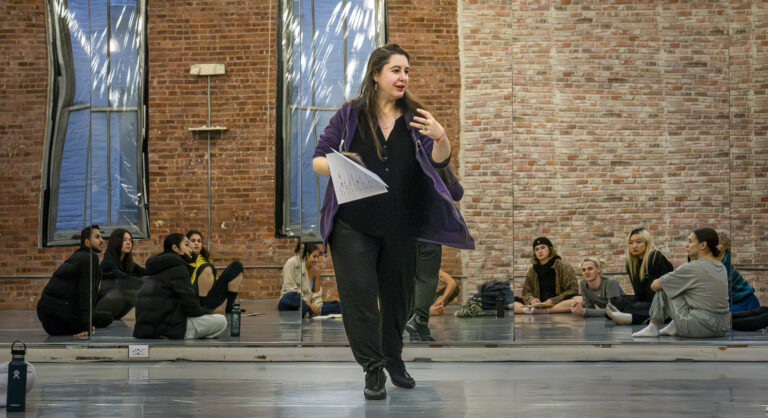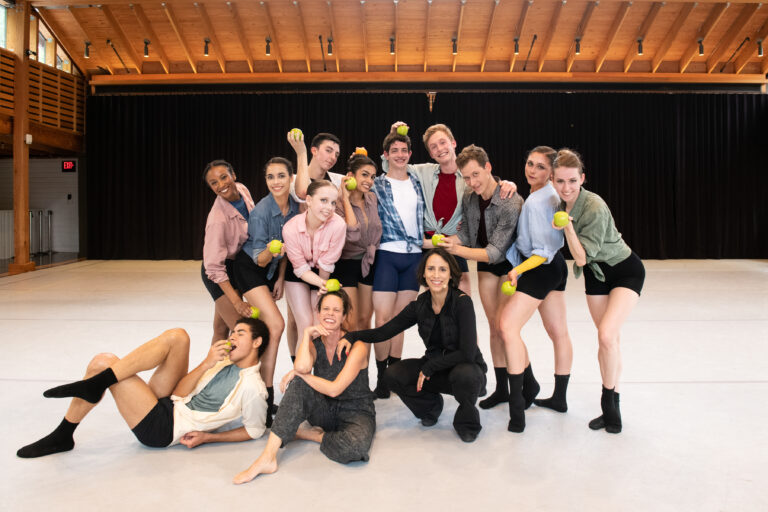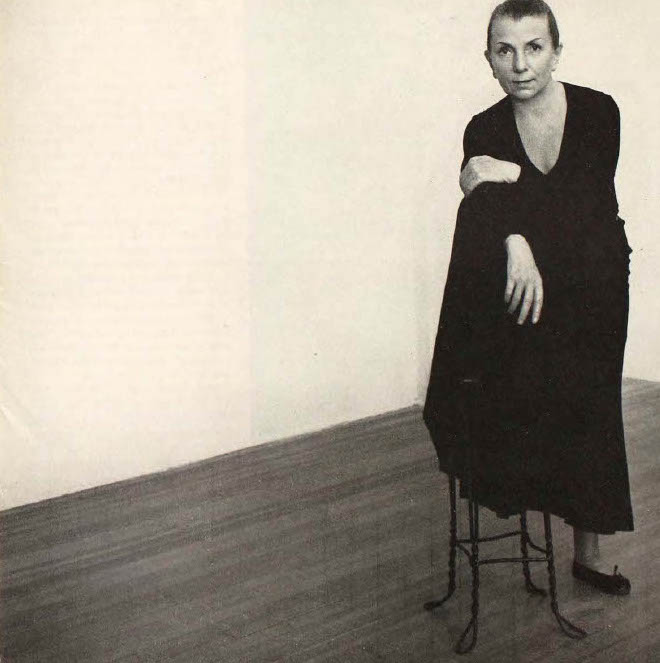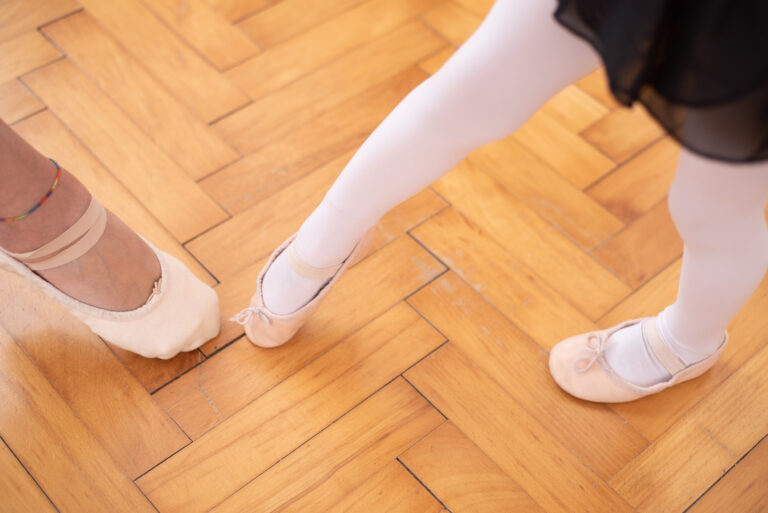
With years of teaching experience under their belts, well-established dance educators have a seemingly natural ability to walk into a room and command the attention and admiration of their students. Students hold these teachers in high regard; they are knowledgeable, practiced, and just generally well-liked.
But how does a younger or less experienced teacher gain this sort of respect? When approached with care, building rapport with students can be done in a multitude of ways. We talked to three dance educators of varying levels of experience to hear their insights.
Be Prepared and Do Your Homework
First and foremost, being prepared helps a teacher feel confident. It also communicates to students that the teacher cared enough to plan ahead of time. After graduating with a degree in dance pedagogy from Oklahoma City University in 2016, preparedness was key to Zoë Harris’ journey. Harris, who currently teaches at Brava Dance Center in Port Chester, New York, and Body Language Dance Studio in Massapequa Park, New York, finds that having a lesson plan and a coordinating playlist enables her to better lead the room. Harris has noticed that when teachers aren’t prepared, they spend time checking their notes and wondering what to do next, which interrupts the flow of class and causes students to lose focus.
For Chip Abbott, a dancer, choreographer, and director who’s been teaching dance for 22 years (currently at New York City’s Broadway Dance Center and Steps on Broadway), preparing for class also means doing research. He believes that educators should explain the history of what they are teaching. “If you are teaching jazz, know about Luigi,” says Abbott. “You should not only be teaching a fun class with style and great steps, but you should really know what is happening in the artform and understand the history.” This not only educates the dancers, it gives evidence that the teacher is knowledgeable.

Find Effective Ways to Address Behavior Problems
No matter how prepared the instructor, students tend to test the waters with new teachers, and disciplinary issues can happen. For younger students, Harris preempts this by laying ground rules in a fun way. “I have the ‘ABCs of Miss Zoë’s Class’ that have little sayings, like ‘A is for ‘Always be dressed’ and so on,” she says. For older students, she expects them to already understand basic class rules, but she promptly addresses any problems that arise. Harris believes that new teachers should not be afraid to speak up and command the space. “You have something to say,” she adds. “And it matters.”
At just 19 years old, Quin Wilkason is enjoying the challenge of being a new teacher. He teaches dance at Releve Dance Studio in Los Angeles. “It can be hard to find a balance between strictness and lightheartedness,” says Wilkason. He has found that modulating the tone and volume of his voice can be a useful tool. When students are getting out of hand, Wilkason gathers them close and quiets his voice to bring the energy down before going on with class. This has proved a great way to positively establish control of the space and garner respect.
Challenge Your Students—Don’t Break Them
New teachers may have the notion that they need to be extremely demanding in order to prevent students from questioning their authority. But this can actually result in an even greater lack of respect. Abbott recalls a time early on in his choreographic career where he yelled at his students. “I was really upset by what I perceived as a poor work ethic. But now being on the other side of it, I see it was fear and exhaustion,” he explains. “My yelling did nothing to help. They automatically shut down and it strained our relationship.” Abbott learned from this experience to always lead from kindness. He still deliberately tries to move fast and keep his class challenging, but, he says, “You don’t have to break people down to build them up. You can get so much more out of someone by inspiring and encouraging them.”

Learn From Your Own Teachers
New educators often try to emulate their own teachers. Sometimes this is extremely beneficial, but sometimes it is unproductive. After yelling at his students in rehearsal, Abbott recognized that he had been mirroring a teaching approach that he experienced as a young dancer. He realized this method didn’t work for him. Our past mentors have a huge effect on us, but it’s up to each instructor to choose what works for them. “Every teacher is going to leave a little piece of themselves with you,” says Harris. “There are things I haven’t appreciated, and I leave that behind. Others are amazing, and I take them with me.”
Create an Environment of Respect and Kindness
When it comes to gaining respect as a new teacher, the simple acts of kindness, encouragement, and empathy can go a long way. Abbott encourages teachers to treat your students how you would want to be treated and leading them how you would want to be led. He leads with encouragement and strives to create a safe space where students are allowed to make mistakes.
Despite having less experience, Wilkason has developed a similar approach: He believes he is most successful in gaining respect when he first gives respect. “A big part of gaining respect is knowing someone as a person,” he says. Wilkason gets to know his students by asking them something as simple as how their day is. It lets them know that he cares about them and their lives outside of dance. In order to engage with and relate to her students, Harris tries to stay up to date on what their interests are. “I want to be a human being, and want them to know I’m not some teacher robot,” she says. “I try to be myself no matter what, but tone up my professionalism.”





